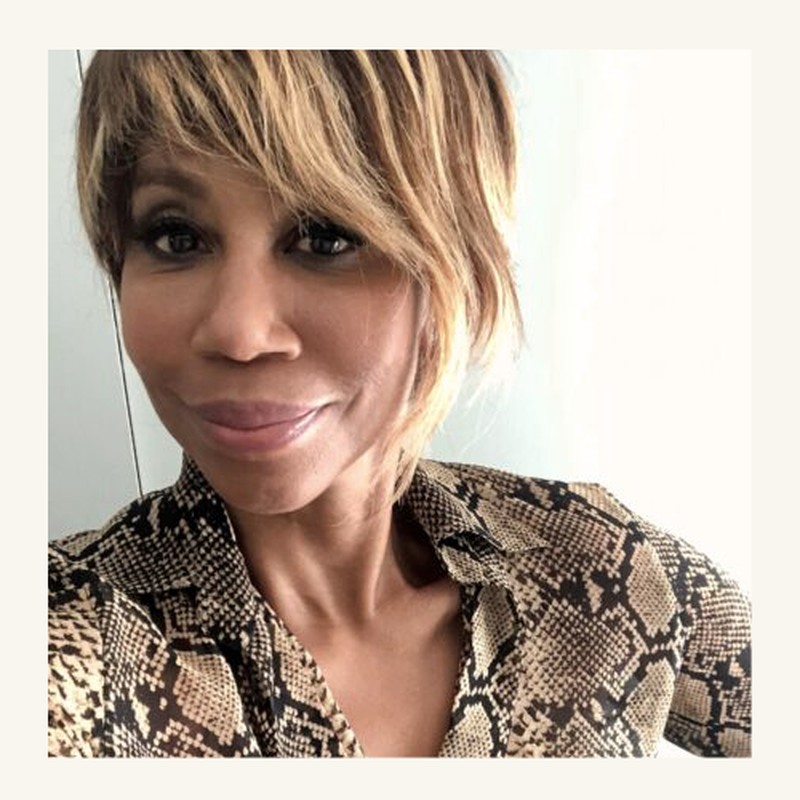
Chapters In My Life: Trisha Goddard
Chapter One: Early Childhood
“I was born in Hackney in 1957 to a West Indian mother from Dominica, who came over in the Windrush generation to help the NHS after the war, and a man who I believed to be my father. My mother convinced him that he was my father, and to me he is, but he wasn’t genetically. Both my parents were psychiatric nurses and when I was very young we moved to a caravan site because, with one Black and one white parent, nobody wanted to house us – it was: ‘No Blacks, no Irish, no dogs’. My mother had three more daughters (my half-sisters) and we moved to Brentwood in Essex where my youngest sister was born. I grew up in a household that had not one penny extra, but I didn’t think of us as poor – my mother was a great seamstress, so we were always beautifully dressed.
“For most of my life, I was always the only Black child, but I absolutely loved my primary school years. The only thing I hated was Enid Blyton because when the teachers read about the golliwogs, I got smacked or hit by other kids in the playground and I remember, even then, people calling me names. I asked my father why they picked on me and he told me a funny story about god putting the nicest person at the front of the queue and, when he had a bad tummy, the people nearest to him turned brown! There was no sort of education, as far as colour, in those days.”
Chapter Two: Growing Up In Tanzania
“When I was about five, we travelled to East Africa on a ship. I remember those days vividly and it was fantastic. I was in one cabin with one of my sisters and my mother was in another with the others. I remember going to the nursery on the ship where they had a lovely old-fashioned rocking horse. Playing on the horse with a tub of vanilla ice cream (which I’d never tasted before) is one of my happiest early memories. We moved to Dodoma in Tanzania, which had just got independence – my mother worked as a secretary and my father spent time setting up two psychiatric hospitals, and those years living there were idyllic.
“Tanzania was one of the best parts of my childhood – I started learning to play the piano at school and we were taught French and Latin, and I learned Swahili, too. The school was run by two New Zealanders and, when we came back to England, we were way ahead of the British school system. There was an international mix – my classmates were Australian, French, German and African, so there were children from all over the world. Tanzania was wild and rural – we’d go camping and see lions, deer and giraffes, and there were baboons on a small mountain behind our house. We had to wear ribbons in our hair because of snakebite – I once had to do a tourniquet on my sister and had to call the hospital after she’d been bitten.
“When we came moved back to Norfolk, where my dad was from, it was a hell of a shock. The bullying and the nastiness at school was awful, and it’s fair to say it scarred me for life. We went to a very small rural school and, again, I was the only Black child. We were greeted by chants at the school gates every day and were beaten up most days, too – one teacher even sat me down and told me that that was life and I had to get on with it. I always said that I’d never go back to Norfolk, so it’s funny that as an adult I ended up back there for work. Luckily, my parents later got jobs in Virginia Water so we moved there. I remember walking into my school at St Anne’s Heath and seeing a Sri Lankan teacher – I was so relieved to see someone who looked like me. I was never bullied or teased in my new school; in fact, colour wasn’t an issue and I loved it. I won a place at a prestigious grammar school, Sir William Perkins's in Surrey, and I had a wonderful time there. My parents were very proud.”
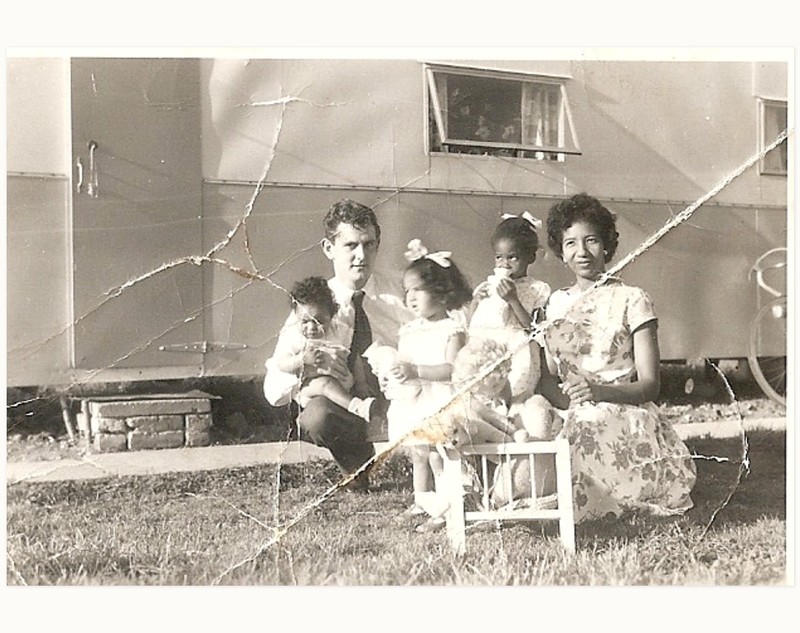
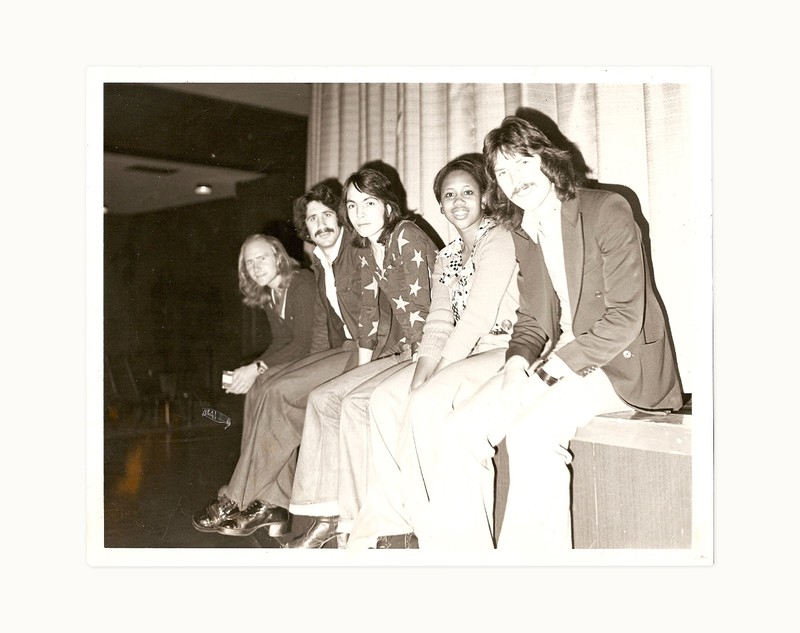
Chapter Three: Life On The Road
“When I left school, I didn’t know what I wanted to do. In hindsight, I wanted to be a journalist. We lived in a tiny house with three smalls bedrooms, it was very chaotic and there was a lot of arguing, so I was keen to move out. I had a Saturday job working at Woolworths where I met a couple of girls and we were recruited into a girl band – I played the keyboard. From about the age of 15, I played in bands at the weekends, so when I left school I went on tour with my band to Germany. I could speak German by that stage, so we went on the road and supported James Brown, in the days when he was just out of prison, and the five of us had a great time.
“I also worked for a costumier for a few months and worked on television sets on shows like Dad’s Army and The Lulu Show but I earned more money in the band, so I decided to be a musician on the road for a couple of years. When we came back to the UK, I started working in shops, first as a language expert in a fashion shop in Bond Street, then later in China Craft in Oxford Street. The main reason for those jobs was to support gigging every weekend.”
Chapter Four: Becoming An Air Hostess
“I was 20 when I saw a poster on the bus for a new invention called the hovercraft. They wanted hostesses and, on a whim, I applied for the job. They were looking for French-speaking people and I landed the role. After splitting up with a boyfriend, I moved down to Dover and spent a couple of years working on hovercrafts. In the late 70s, I then decided I wanted to travel, so I went for an interview with British Airways. The one problem was that I wouldn’t be able to go on flights to Australia, even though I had lots of family there, because they didn’t repeal the White Australia policy until I was 21, meaning I wouldn’t be able to stay there. A woman then pulled me aside and said they were interviewing across the corridor for Gulf Air, so I applied, and got the job. One of my first trips was to Bahrain, which I loved. I realised I could understand a lot [of the language] because I knew Swahili, so I learnt Arabic, too. I spent my twenties, up until about 27 or 28 with Gulf Air. I became a senior flight stewardess, and absolutely loved living in Bahrain.
“During this time, I met my first husband, Robert, on a plane. He was a passenger and back in those days, they would often oversell business and first-class tickets, and as a senior member of the crew, you got the lucky job of asking them to move across to economy. He was one of the people and he was fairly snotty about it, not that I blame him! On the way back, the only spare seat on the flight was next to Robert and I was so embarrassed. At first, I didn’t really like him. He did most of the talking and, later, he pursued me with flowers and chased me all over the world. He was about ten years older than me; I was quite flattered. Robert, who was very well connected, invited me down to Australia, and in our first meeting I met the prime minister. I was swept away by the whole thing, and one thing I tell my children – and any women out there – is to beware of people who give you the charm offence and ask to marry you very, very quickly. I would even say I was pressured into it, and it was a very controlling relationship. Thankfully, that marriage broke down very quickly – it was over before I was 29. Later he was diagnosed with AIDS and sadly passed away.”
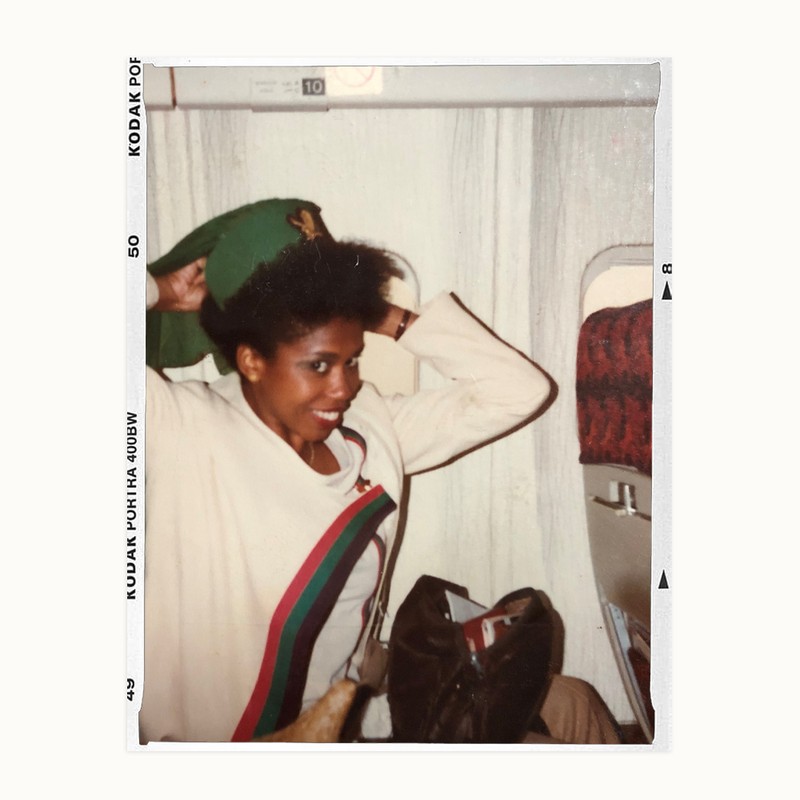
Chapter Five: The Big Break Down Under & Family Life
“Being in Australia during those years was hard, letters took about six weeks to get to and from the UK, phone calls were exceedingly expensive and, again, it was very racist. I started working as a journalist, dabbled in a bit of PR and worked on celebrity campaigns before eventually landing a job in television in 1986. By 1988, I’d applied for a job as a journalist on ABC’s flagship show, 7.30 Report, and I got the job as a presenter, which I wasn’t expecting at all. I made history as the first Black television anchor in Australia. The racism was horrific and it was very difficult being a person of colour there. That said, I do love Australia – every country I’ve lived in has a good side and a bad side. Shortly afterwards, I met my husband Mark, the father of my two daughters. He was an editor and, again, he pursued me. I was never very maternal but when my younger sister, who had schizophrenia, took her life when she was 27, I suddenly decided that I wanted a child.
“I lived a clean life for a few months and planned the day I was going to get pregnant. I worked all the way through my first pregnancy with my daughter Billie – there was no maternity leave back then. One evening, I went to put the rubbish out when suddenly, a journalist got out of a car and ran at me. Trying to get back to the house I slipped and fell over – the man was trying to stake me out. I was on TV every night, there’d even been national debates about me – I hate the word famous – but you could say I was known. This fanatic wanted to be the first on the scene when I was wheeled off to hospital to have the baby. I was so shocked I went into labour two weeks early. Luckily, I had classes so I could have a fast, natural birth and I was back at work two hours afterwards. I called my exec producer and we decided to get a crew out to the hospital – I did my make-up and presented the 7.30 report right there in my hospital room.
“Less than a week later, I was back on air while the camera men looked after Billie in between takes. She came on the road with me, but I decided I couldn’t do it full-time with a newborn, so started co-producing a new show called Everybody, which was about health, lifestyle and relationships. I had a nanny to help during the day so she could come everywhere with me. Don’t get me wrong, Mark absolutely loves Billie, but he wasn’t really into the father stuff back then, so I was ‘single mum-ing’ it in those days. Later, we had our second daughter, Madison, and I discovered Mark was having an affair. I had a newborn baby to look after, who had nearly died from respiratory illnesses, so when I found out about the affair, I threw him out and became a single mum. I had a breakdown and realised that I had to stop being everything for everyone. I was working crazy hours whilst still doing all the school runs, shopping, cooking and homework, plus I had my own production company and I was making my own shows. I worked on and off for three years, and met my third husband, Peter, through mental health work. Again, he was very charming and asked me to marry him after about three months.”
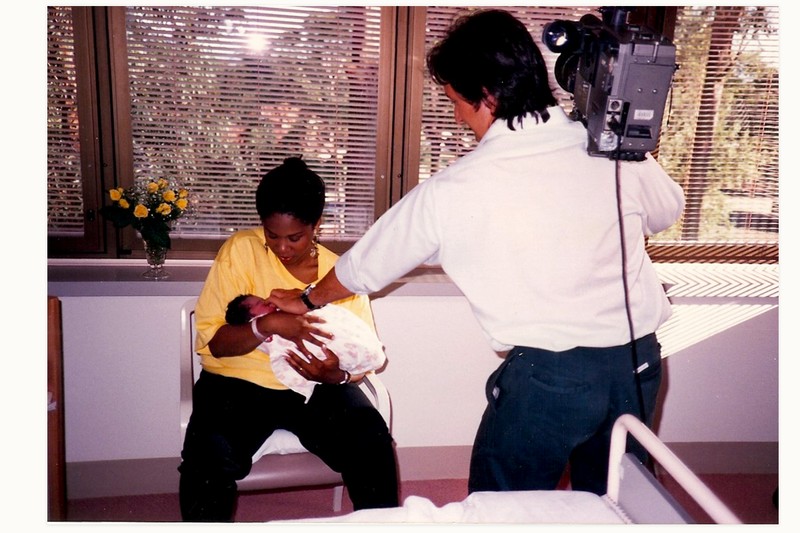
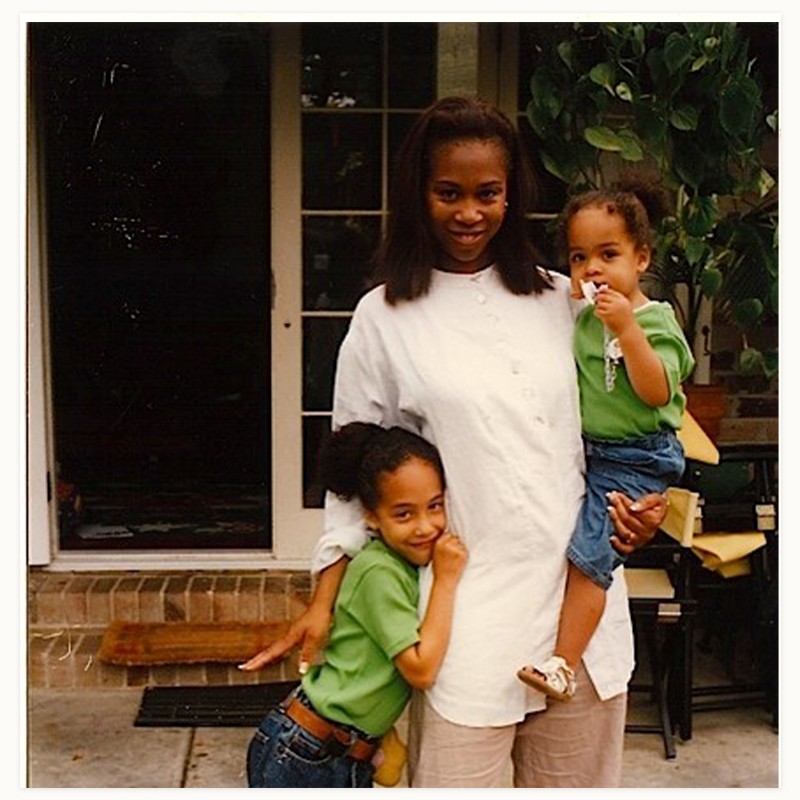
Chapter Six: The Trisha Goddard Show
“One day, I got a message on my answering machine from someone from ITV saying: ‘You don’t know who I am but I’m coming to Australia and I’m going to make you a star.’ I fell about laughing, but he did come to Australia and we talked about having my own TV show. I told Peter about the opportunity and in 1998 we moved back to Norfolk. I remember landing in the UK on a bank holiday weekend and, on the Tuesday, I started my chat show…and the rest is history. It moved from ITV to Channel 5 in 2005 and ran for a further five years under my own production company.
“I never felt famous during these years, as I lived in a rural area in Norfolk. I also built a place in Cannes and had another home in the mountains in Maine which always felt more like home. Looking back, I never signed up to be a presenter, I signed up to be a journalist. I’ve always felt a bit strange about being famous, even when I did Piers Morgan’s Life Stories, and I’m still shocked when people recognise me now. The level of intrusion when I had breast cancer [in 2008] was awful. I came back from the first diagnosis and, 24 hours later, a news desk at a national newspaper was calling me for the scoop. I hated that. I couldn’t even have chemo on the NHS because they couldn’t guarantee that someone wouldn’t sell photographs. At the time, I didn’t want to tell anyone I had breast cancer, but someone leaked it to the press, so I sat down with a trusted journalist and made sure I told the story first.”
Chapter Seven: Heading Across The Pond
“A few years later, I was headhunted my NBC in America. I’d trained in conflict resolution when I was in Australia, so I was able to use that when I went over to do the Maury show. I had a contract where I’d fly out about 20 times a year, they’d put me up in the plushest of hotels, then I’d come back to the UK. I did that for a couple of years and the ratings were so good, they gave me my own show for two and a half years, which I loved. Meanwhile, however, my marriage to Peter was falling apart, and had been for a while. We eventually got a divorce and I told him the day before. I was very, very low after that and I found myself kind of stranded in America, but I discovered where I live now [Connecticut] and found a group of good girlfriends. I knew I didn’t want to be single and dating in Britain because I had too much of a profile.
“I was commuting back and forth from Connecticut to the UK, working on shows like Good Morning Britain and This Morning. One evening, I was at an equity get-together in New York, where I met a professional ice skater who was on Dancing On Ice. My sister always skated, while I was the academic one, so I asked him if he could teach me (after I’d had a couple of glasses of champagne). There was a video of me saying ‘I could do Dancing On Ice!’ which he put on social media – one of the execs from the show got in touch and, about eight hours later, I was signed up. I love skating, I’m currently training for my first exam. I knew I wouldn’t be any good, but I didn’t care. I always love to try something new.”
The Next Chapter
“In Connecticut, I have a great group of girlfriends and four years ago I met my partner, who I call #Boo – I like to keep his profile a mystery. Media scrutiny can be hard on relationships – it can cause real resentment, even between family. He moved in during lockdown just over a year ago, and it’s the happiest relationship I’ve ever had. I’m not bringing up babies anymore, I wasn’t working crazy hours when I met him and there were no red flags. It’s the first relationship where I am not the major wage earner, too, which has definitely helped.
“Right now, I’m looking forward to the next chapter in my life. I’ve just signed a contract with talkRADIO which I’m working on here in the US. I’ve always loved radio so I’m excited about this new project. I’m also hosting a reboot of You Are What You Eat on Channel 5 with Dr Amir Khan, who is delightful, we get on so well. I’ve also recently been made an ambassador by the Duchess of Cornwall’s Royal Osteoporosis Society – even though I don’t have it, cancer patients are more susceptible to osteoporosis, so it’s about raising awareness that it’s not always a given, it can be prevented by lifestyle choices. I’m continuing my work with various mental health charities and have a few exciting bits in the pipeline, too. After having breast cancer, I’ve tried not to plan life too much, which suits me just fine.”
Follow Trisha on Instagram @TheRealTrishaGoddard and listen to her new radio show on talkRADIO every Saturday afternoon, live from the US. You Are What You Eat will air on Channel 5 later this year.
DISCLAIMER: We endeavour to always credit the correct original source of every image we use. If you think a credit may be incorrect, please contact us at info@sheerluxe.com.

